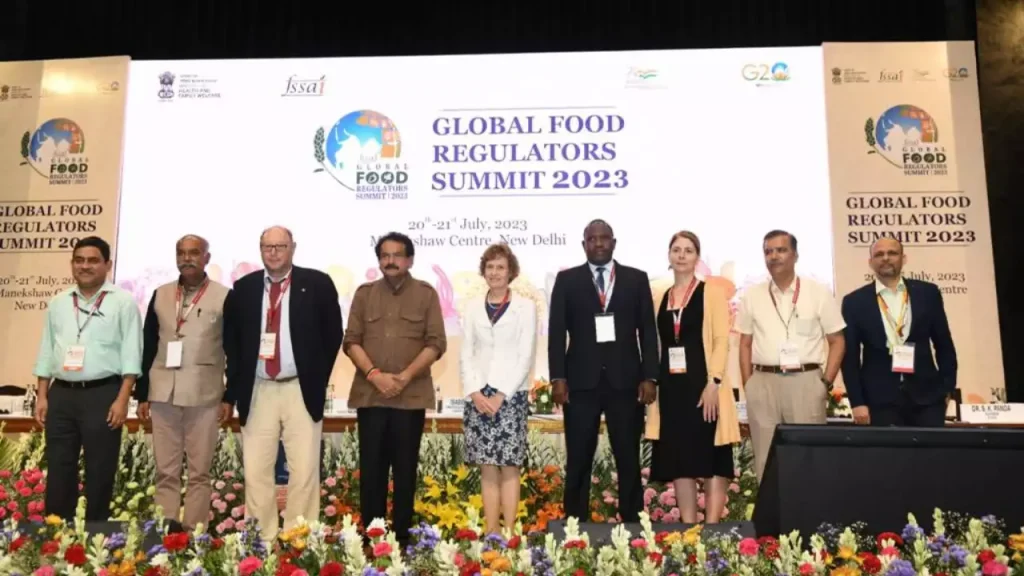Context:
Recently, India participated in the 44th session of the Codex Committee on Nutrition and Foods for Special Dietary Uses (CCNFSDU) held in Dresden, Germany.
More on the News
The five-day session, spanning from October 2-6, 2024, saw active participation from Indian delegates representing various national regulatory bodies.
India’s interventions focused primarily on two crucial areas:

- Advocating for framing of harmonized probiotic guidelines for foods and food supplements, and
- Establishing harmonized nutrient reference values for persons aged 6 to 36 months.
The Indian delegation received substantial support from several nations, including Canada, Chile, and New Zealand, strengthening its position on these vital issues.
Major Developments
1. Probiotic Guidelines Reform: India highlighted the urgent need to update the decades-old Food and Agriculture Organization (FAO)/ World Health Organization (WHO) probiotic documents, emphasizing that current guidelines, dating back to 2001-2002, require revision to reflect recent scientific advancements. The committee agreed to initiate a comprehensive review process.
2. Nutrient Standards Enhancement: The Indian delegation successfully advocated for a systematic approach to determining nutrient reference values (NRVs) for children aged 6-36 months, proposing a mean value of the two age groups 6 – 12 months and 12 – 36 months.
3. Sweetness Assessment Protocol: India took a firm stance against the EU’s proposed sensory testing methodology for sweetness assessment of carbohydrate sources in the Standard for Follow-up Formula, citing insufficient scientific validation.
Future Implications
- These developments mark a significant step toward harmonizing global food safety standards.
- The committee’s decisions, particularly regarding probiotic guidelines revision and nutrient reference values, will likely influence future international food regulations and trade practices.
- The incorporation of India’s suggestions in the final report underscores its growing influence in shaping global food safety and nutrition standards.
India’s leadership role in global food standards development
- Food production: India is a world leader in food production, producing milk, pulses, horticulture, and livestock.
- India is also the second-largest producer of rice, wheat, sugarcane, cotton, groundnuts, fruits, and vegetables.
- Food exports: India is the world’s top exporter of shrimp and spices.
Food safety: The Food Safety and Standards Authority of India (FSSAI) has developed science-based regulations to encourage food safety and reduce the intake of high-fat, salt, and sugar foods.
- FSSAI has also introduced a logo to raise consumer awareness and has also strengthened food testing laboratories.
World Food India: This event is a platform to showcase India’s food processing potential and culinary heritage to a global audience. The event focuses on innovation, sustainability, and collaboration.
Global Food Regulators Summit: The 2nd Global Food Regulators Summit was held in New Delhi in 2024.

